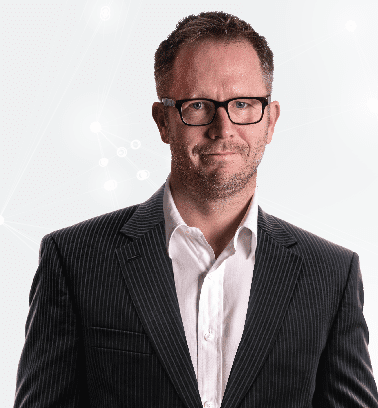“Silicon Valley Is an Attitude, Not a Location.” Skype Co-Founder Speaks to Taiwan’s Startups
“Silicon Valley Is an Attitude, Not a Location.” Skype Co-Founder Speaks to Taiwan’s Startups
In a time when everybody is into startups, nobody is going anywhere if he doesn’t take his company global. Taiwan has been doing well in the IT industry for the past few decades, and accumulated many talents and skills, but how exactly do we use them to help globalize our companies?
At the Visiting Entrepreneur Forum held by the National Development Council, Editor-in-Chief of Business Next, Erica Lu, and Minister of National Development Council Woody Duh both said that the Internet has changed everything in every industry, only if we are more open toward possibilities could we have more resources and opportunities. Slush is a good example, it is a major event in Finland that helps local startups connect with the world. It has gradually become a prominent event in Europe. This year’s Visiting Entrepreneur Forum invited many successful entrepreneurs all over the world to invest in Taiwan, and share their views and philosophy, and the risks within them, to help Taiwan’s startups understand more and bring their ideas to the world.

“First of all, Silicon Valley is an attitude, not a location.” Said Geoffrey Prentice, co-founder of Skype, who was the first speaker on 9/24.
Skype was created by Swedish entrepreneur Niklas Zennstrom in Estonia, a small country with relatively less resources just like Taiwan. Geoffrey said he was in Taiwan 13 years ago to meet PChome, and this time around he saw great improvement in Taiwan’s industrial environment, from govenment’s policies, product quality to companies’ attitudes. Geographic location and resources should no longer be hindering Taiwan’s teams from developing.
Skype came into prominence in Silicon Valley in the late 90s. Geoffrey said that Silicon Valley encourages venturing and accepts failures. Entrepreneurs from there believe firmly that a business failure is never the end of the world; while the outside world also understands that when a business fails, it doesn’t mean the entrepreneur himself fails as well. Each failure represents more experience for your next comeback. They also believe that going to work is not a job, it’s a career. “We invest all our energy and time into this company, hoping to change the world with our product.” Geoffrey thinks this kind of experience and sense of accomplishment are important to entrepreneurs. You have to believe that your company can make a difference, don’t just settle for making ends meet.
Your First Goal is the Entire World, No Excuses
Since launch, Skype has been seeing themselves as a global enterprise, and emphasizing their brand recognition on the Internet. Having worked in a European telecommunications company before, Geoffrey knew from the start that Skype was going to completely change the telecommunication industry and the way people communicate all over the world. Skype is now the most downloaded Internet phone call app, with a total call duration of over 1.9 trillion minutes. Geoffrey said, “We come from a small country near the Baltic Sea, the total population of Estonia and Sweden is only half of Taiwan’s. If we can do it, so can everybody in Taiwan.”
He said, Taiwan has gathered a lot of experience in hardware and semiconductor for the past decades, and has already been part of the global supply chain as OEM. Taiwan’s teams are already eyeing the global market, and not just an imitator of other people’s business models. Geoffrey listed several advantages today’s entrepreneurs have, and directly pointed out that anything you think might hold you back is getting less and less significant.
1. Always up to date with Information
An entrepreneur understands the global market at any given time. He can obtain all sorts of information about the market with simple mouse clicks.
2. You Can Start from Nothing
Thanks to databases, softwares and open-source, it’s a lot easier to start your own business these days. Take Uber for example, the maps and payment methods they use are not even their own, they just focus on what they do. Geoffrey said, entrepreneurs or startups should know what they are good at, and put all the pieces together, instead of building these pieces one by one. This is the major difference between the present and the past, and this is the agile and lean startup everybody is talking about these few years: there is always someone who can help you at the back-end, the entire team can then focus on the things they do best.
3. You Can Be Anywhere
Once you have a good product you can sell it on mobile platforms like Google Store to the entire world. In 2012, Finnish company Rovio made over 76 million dollars net profit with Angry Bird, and saved themselves tens of millions of dollars on marketing. As mobile users and the Internet itself grow day by day, the digital technology and supply chain produce more and more opportunities as well. There is really no excuse that Taiwan can’t reach the world.
4. New Economy vs. Old Economy
Skype uses new technology to get customers from traditional telecommunications, and people are leaning toward the software, to develop new business models with existing resources. This also implies that you are competing against the whole world, so besides creating the latest apps for the users, you have to think about the problems people are facing, and how you are going to solve these problems for them. Most importantly, you have to know your customers really well, if anyone knows them better than you do, he can easily surpass you. To quote the former CEO of GE, Jack Welch, “If you don’t have a competitive advantage, don’t compete.”
Nope, You Don’t Have to Start Your Own Business Right Away
“It’s not true that if you don’t start your own business right away, you’ll never get the chance. Many young people are asking how to start a business if you don’t know what you want to do. I will tell them to get jobs, and learn from them, experience the real problems.” Geoffrey said, a company founder from Silicon Valley has an average of 14 years of work experience. You can’t just have the spirit but no experience or capability, you have to be the apprentice first before you become the master. Working for someone else is gathering knowledge for yourself, it is also an investment. It’s a simple truth many entrepreneurs fail to understand.
In addition, he also sees another mistake people often make. Many people sell their companies to bigger companies once they have gained enough profit and praise. They might mean well for their companies, but they don’t necessarily end up well. Geoffrey reminds entrepreneurs not to sell their companies too early, because once your company is purchased it rarely moves on to its next stage. It’s only up to you, the founder, to lead the team and make a difference.
It’s easier than ever to be an entrepreneur, but it’s harder than ever to build a successful business.
Breathe the Same Air With the People
After Geoffrey’s presentation, a few other entrepreneurs with global experiences were also invited on stage, to talk about Taiwan’s entrepreneurial environment and give local startup teams advice on going global.
CEO of Armorize Technologies Inc., Wayne Huang, has now invested in 6 Taiwanese startup teams and helped them enter the global market. He said it was not easy, and the reason he could do it is that these teams were already moving in the right direction. Founder and CEO of Accupass, Ziwen Luo, said that “integration” is the first step to expansion. Once the Accupass team arrived in China, they started living with their local partners, and spent two whole years to fully understand the life of Chinese startups, and collect useful information like user networking. VMFive CEO Sam Ding, who has experience in Japan, also said that in order to become globalized, your initial localization and ecosystem play important roles. Localization means finding the right way to communicate (language or etiquette), and putting together a localized team; while ecosystem means keeping in touch with the entire industry, some say it’s social networking that matters, which Ding disagrees, “I don’t socialize with a lot of people. I believe building a complete ecosystem is key.”
Speaking of personnel training, ALPHA Camp founder Bernard Chan said that in traditional Asian education there is always the cram school to go to when you want to be good at something, but business should be about doing something you’re already good at, not trying to be better at something you can’t do well. Thanks to all the accelerators, startup forums and activities out there, this kind of mentality is now being corrected. Plus the Executive Yuan has been actively involved in entrepreneurship for the past year, by being lenient on closely held corporations, more open to equity crowdfunding, providing specific entrepreneurship assistance project and angel investment and assisting startup teams to participate in international contests, you name it.
“Taiwan’s ecosystem of innovative entrepreneurship is starting to take form, entrepreneurship in the past will see actual difference like a building, an industrial park, but the progress of software innovation is still difficult be brought into view, even when it’s there it still won’t be noticed.” Geoffrey concluded that Taiwan has more advantages than other countries, like education, government resources and a history of business innovation. These things might not be directly related to the digital world, but are still helpful to startups. Taiwan has excellent universities, institutes of technology, and role models from many great companies and the government. For example, Foxconn and Acer both started from scratch and still made it. These companies prove that you do not necessarily need any privilege to build a great enterprise.
中文版連結
Cover photo via Sinchen.Lin@Flickr, CC License











留言討論